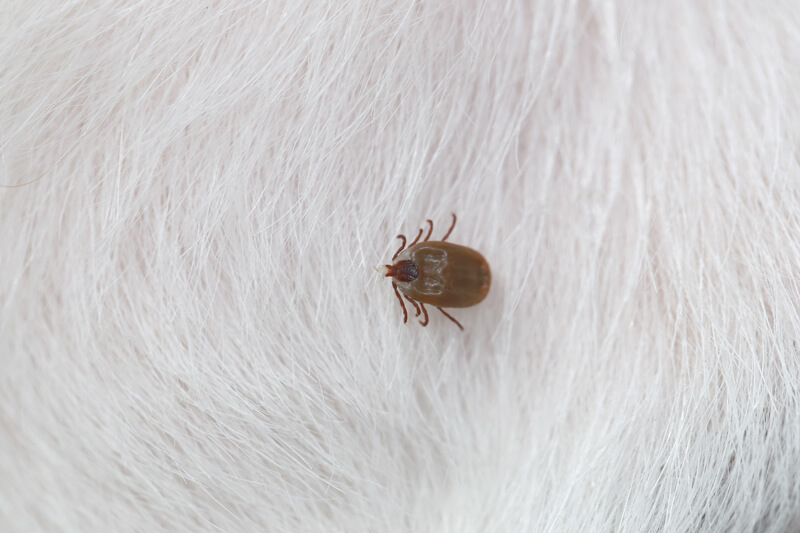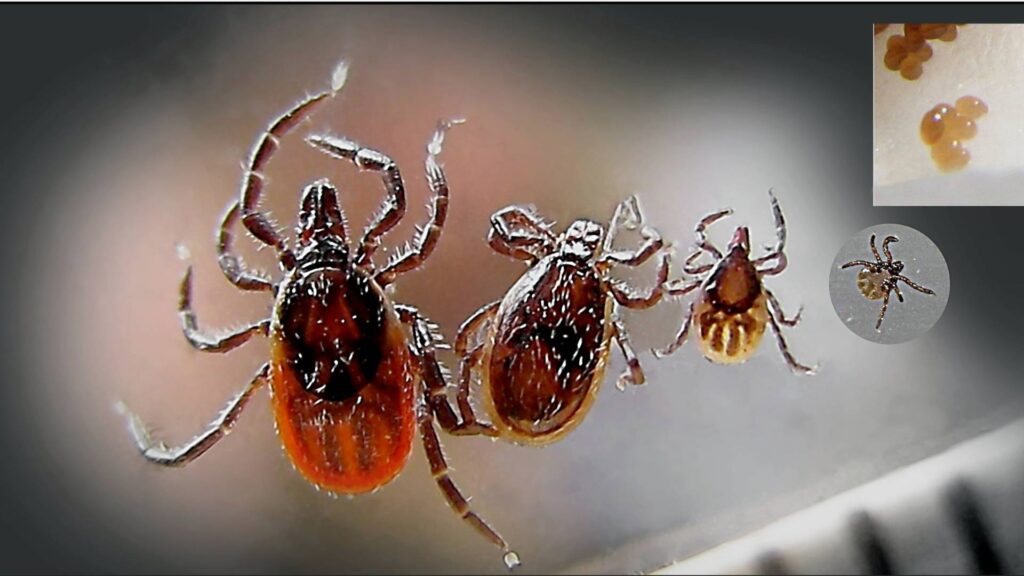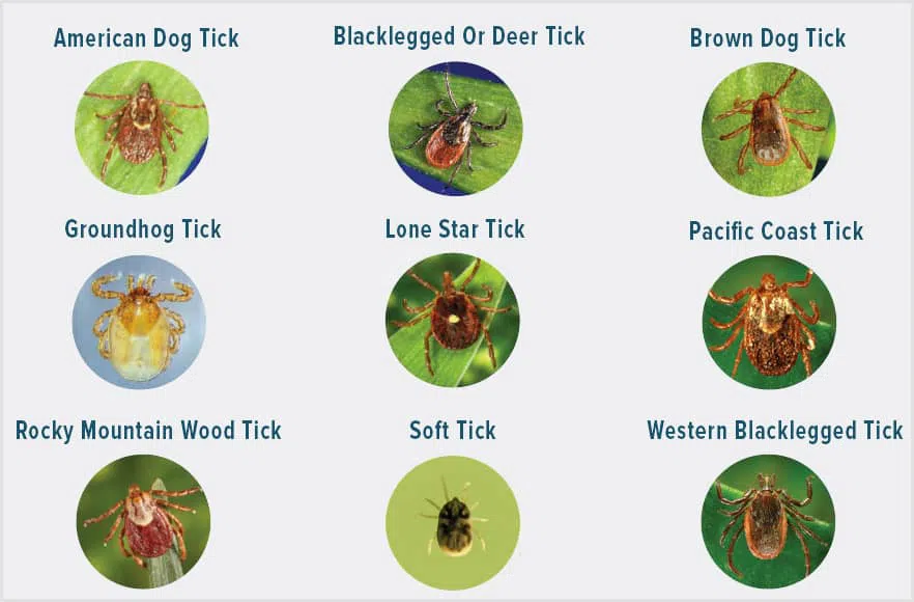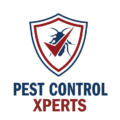Tick Treatments in Florida
Exterminator Services for Haines City, Lake Alfred, Winter Haven, Lake Wales, Davenport, and Polk City
Tick Control and Removal in Haines City, Florida, Pest Control Xperts
Enjoying the outdoors is a huge part of living in Central Florida, but venturing into the backyard shouldn’t come with the fear of picking up unwanted hitchhikers. At Pest Control Xperts, we provide specialized tick control and tick removal services to homeowners and pet owners in Haines City, Lake Alfred, and the surrounding communities. Ticks are more than just a nuisance; they are blood-feeding parasites capable of transmitting serious diseases to both humans and animals. Our region’s warm climate and abundant wildlife create the perfect conditions for tick populations to thrive year-round.
We serve the specific needs of Polk County residents, from families with large wooded lots in Lake Wales to homeowners in the manicured neighborhoods of Davenport. We understand that ticks often enter properties on wildlife like raccoons or stray cats, dropping off in your grass to wait for a new host. Our team focuses on thorough pest inspection to identify high-risk zones, safe pest management practices to reduce the population, and clear communication on how to protect your loved ones. If you are finding ticks on your pets or yourself, we are ready to help you reclaim your yard.
Why Ticks Flourish in Florida

Tick Problems We Solve in Haines City
Ticks are stealthy predators. They do not jump or fly; instead, they “quest” by climbing tall grass or shrubs and holding out their front legs, waiting to grab onto a passing host. In Haines City, the mix of rural and suburban environments means that tick pressure is high. A single female tick can lay thousands of eggs, turning a minor issue into a major infestation quickly. While most ticks stay outdoors, species like the Brown Dog Tick can infest the interior of your home, hiding behind baseboards and in furniture.
We approach tick control with a comprehensive strategy that targets the environment where they live. Simply pulling a tick off your dog solves the immediate problem but does nothing to stop the hundreds waiting in the yard. We use pest tracking methods to identify the harborage areas where ticks breed. Our goal is total infestation control, creating a barrier that keeps these parasites away from your family and pets. We help you understand the connection between wildlife activity and tick presence on your property.
Common signs of a tick issue:
- Finding ticks attached to your pet’s ears, neck, or paws
- Small, dark arachnids crawling on your clothing after being outside
- Red, irritated bumps on the skin, sometimes with a “bullseye” pattern
- Pets scratching excessively or shaking their heads
- “Seed ticks” (larvae) that look like tiny specks of dirt but move
- Ticks found crawling on walls or curtains inside the home
- History of tick-borne illness in the household or pets
- Presence of wildlife like opossums or raccoons in the yard
Types of Tick Issues We Handle
Tick control for yards and outdoor spaces
The majority of tick encounters happen right in your own backyard. Ticks prefer moist, shaded areas with dense vegetation. They often congregate along the “ecotone”—the transition zone where a manicured lawn meets a wooded edge or fence line. In Haines City, overgrown shrubbery and leaf litter are prime hotspots. Our exterior tick control focuses on treating these specific areas to reduce the population before they can latch onto you or your pets.
What we look for during inspection:
- Tall grass along fences and foundations
- Leaf litter piles under trees or shrubs
- Wooded edges bordering the property
- Overgrown vegetation near dog runs or play areas
How we approach treatment:
We perform pest barrier installation by applying granular or liquid treatments to the harborage zones. We focus on the shaded areas where ticks stay to avoid drying out. We do not broadcast spray the entire lawn unnecessarily; instead, we target the areas where ticks actually live.
Brown Dog Tick infestations indoors
While most ticks die quickly indoors due to low humidity, the Brown Dog Tick is a unique exception. This species is capable of completing its entire life cycle inside your home. They often infest kennels, dog beds, and can even be found crawling up walls and curtains. An indoor tick infestation is a severe issue that requires immediate professional attention, as they can breed rapidly in the climate-controlled environment of your house.
What we look for during inspection:
- Ticks hiding in cracks around baseboards and door frames
- Activity behind wall hangings or loose wallpaper
- Infestations in furniture where pets sleep
- Ticks crawling on ceilings or upper walls
How we approach treatment:
We treat the cracks and crevices where these ticks hide, using products specifically labeled for indoor tick control. We often recommend working in conjunction with your veterinarian to treat the pet simultaneously. We also focus on sanitation guidance, advising you on washing bedding and vacuuming to remove eggs and larvae.
Tick removal for pet owners
Pets are the primary magnet for ticks. Dogs and cats that roam outside act as “tick mops,” collecting parasites from the environment and bringing them to your door. In our area, pests like the American Dog Tick are common. Protecting your furry family members is a top priority. While we cannot treat the animal directly (that is for your vet), we treat the environment to break the cycle of re-infestation.
What we look for during inspection:
- Kennel areas and outdoor dog houses
- Pathways where pets frequently walk
- Gaps under sheds where wildlife (and ticks) hide
How we approach treatment:
We create a safe zone for your pets by treating the areas they frequent most. We utilize integrated pest management to reduce the tick population without putting your pets at risk. We also advise on vegetation management to make the yard less attractive to ticks.
Seasonal tick prevention
In Florida, “tick season” can feel like it lasts all year, but activity often surges in the spring and summer. During these times, nymphs and adults are most active and aggressive in their quest for a blood meal. Seasonal prevention is crucial for maintaining a tick-free yard, especially if you live near conservation areas or undeveloped land in Winter Haven or Polk City.
What we look for during inspection:
- Seasonal vegetation growth
- Changes in wildlife activity patterns
- Moisture levels in the landscape
How we approach treatment:
We offer recurring services that adjust to the season. We ramp up preventative pest measures during peak activity months. We focus on maintaining the chemical barrier and monitoring for new incursions from surrounding wild areas.

Our Tick Inspection and Treatment Approach
Effective tick control requires a strategic approach. At Pest Control Xperts, our process begins with a detailed pest assessment service. We inspect your property to identify the specific tick species and the environmental factors supporting them. We look for “questing” sites—tall weeds, fence lines, and brush piles. We also look for signs of wildlife hosts, as keeping raccoons and rodents out is often key to keeping ticks out.
Our treatment plan is based on safe pest management principles. We use targeted applications rather than blanket spraying. This protects pollinators and beneficial insects while effectively eliminating ticks. For indoor infestations, we use specialized products that reach deep into the crevices where Brown Dog Ticks hide. We focus on long term pest control by addressing the habitat issues that attract ticks in the first place.
We act as your partner in pest proofing. We provide specific recommendations on landscaping, such as creating a mulch barrier between wooded areas and your lawn to stop tick migration. We help you implement pest deterrent strategies that make your property less hospitable to the wildlife that carries ticks. Our goal is to provide a comprehensive solution that protects your family from tick-borne diseases.
Tick Prevention and Pest Proofing Tips for Haines City Homes
You can significantly reduce the tick population in your yard by managing the landscape. Ticks need high humidity and cover to survive; by modifying their habitat, you make your yard a hostile environment for them.
Preventative steps that actually help:
- Keep grass mowed short, as ticks avoid direct sunlight and dry conditions
- Remove leaf litter, brush piles, and overgrown weeds from the yard
- Create a 3-foot wide barrier of wood chips or gravel between lawns and wooded areas
- Trim tree branches and shrubs to let more sunlight into shaded areas
- Stack wood neatly and in a dry area to discourage rodents (primary tick hosts)
- Secure trash cans to keep raccoons and opossums away
- Clear tall grasses and brush around homes and at the edge of lawns
- Keep playground equipment, decks, and patios away from yard edges and trees
- Check pets for ticks daily after they come inside
- Consider fencing to keep stray dogs and wildlife out of your yard
By implementing these pest prevention steps, you reduce the areas where ticks can breed and hide. Combined with our professional service, these property pest management techniques create a safer environment for everyone.

Residential and Commercial Tick Control
We serve a wide range of clients in Polk County. Our residential pest control services are designed to protect families and pets in their own backyards. We work with homeowners to create safe play zones for children and animals, giving you peace of mind when enjoying the Florida weather.
For commercial properties, ticks can be a liability. We offer commercial pest services for veterinary clinics, doggy daycares, campgrounds, and outdoor event venues. We understand the importance of safety and compliance. Our team provides professional pest control solutions that manage tick populations in high-traffic outdoor areas, ensuring a safe experience for your customers and guests. We work discreetly to maintain the reputation of your business.
Professional Tick Extermination vs DIY Methods
Many homeowners try to control ticks with store-bought yard sprays or granules. While these products can kill some ticks on contact, they often fail to penetrate the dense vegetation and leaf litter where ticks hide. DIY applications can also be washed away quickly by Florida rains if not applied correctly with the right binding agents. Furthermore, failing to identify an indoor infestation of Brown Dog Ticks can lead to months of frustration as DIY products rarely reach deep enough into crevices.
Professional tick extermination involves using commercial-grade products with residual power. We know where ticks hide and have the equipment to deliver the treatment to those hard-to-reach areas. We also understand the biology of the tick life cycle. We use insect growth regulators (IGRs) to stop larvae from developing into biting adults. We utilize exclusion techniques for pests to reduce the wildlife hosts that bring ticks into your yard. Trusting a professional ensures a more effective, longer-lasting solution.
Frequently Asked Questions About Tick Control
Do you provide tick control in Haines City and nearby areas?
Yes, we serve Haines City, Lake Alfred, Winter Haven, Lake Wales, Davenport, and Polk City. We are your local specialists for tick removal and prevention.
How do I know if I have a tick infestation?
If you consistently find ticks on yourself or your pets after being in the yard, you likely have an established population. Seeing ticks crawling on walls indoors is a sign of a severe Brown Dog Tick infestation.
Do you treat the inside of the house for ticks?
Yes, if you have Brown Dog Ticks, interior treatment is necessary. For other species, treatment is usually focused on the exterior where they live.
Is the treatment safe for my dogs and cats?
Yes, we use safe pest management practices. We ask that pets be kept inside during the treatment and until the product has completely dried.
Will treating my yard kill all the ticks?
Treatment significantly reduces the population, but no method is 100% instant. It works best in combination with landscaping changes and treating your pets with veterinary products.
Do ticks jump from trees?
No, ticks do not jump or fly. They crawl up tall grass or shrubs and wait for a host to brush past them. They do not drop from trees.
What diseases do ticks in Florida carry?
Ticks in our area can carry Rocky Mountain spotted fever, Ehrlichiosis, and Lyme disease (though less common than in the northeast). Prompt removal is key to safety.
Is there a local tick exterminator near me?
Yes, Pest Control Xperts is your local provider for Haines City and the surrounding Polk County communities. We are nearby and ready to help.
Service Area for Tick Removal in and Around Haines City, Florida
Pest Control Xperts is proud to serve the residents of Polk County. We know the local neighborhoods and the specific pest pressures they face. From the rural properties of Lake Wales to the suburban streets of Winter Haven, we are dedicated to keeping your yards tick-free.
We serve the following communities:
- Haines City
- Winter Haven
- Lake Alfred
- Lake Wales
- Davenport
- Polk City
- Dundee
- Loughman
We are just a phone call away. Zip codes we serve: 33844, 33845, 33850, 33880, 33881, 33837, 33896, 33897, 33868, 33853, 33859.
Conclusion
Ticks are a threat to your health and your peace of mind, but they don’t have to ruin your time outdoors. At Pest Control Xperts, we have the experience and the tools to reduce tick populations and protect your property. We provide the expertise needed to keep these parasites at bay. Reach out to us for a professional solution that lets you enjoy your yard again.
Contact us today to schedule your inspection and protect your family from ticks.
